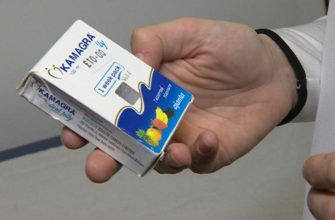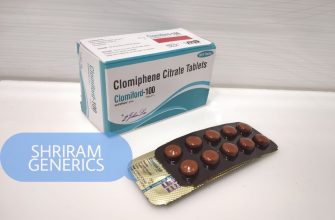If you’re exploring options for treating erectile dysfunction (ED), understanding the role of cGMP and how sildenafil interacts with it is vital. Sildenafil, commonly known as Viagra, works by enhancing the effects of cGMP, a molecule that relaxes smooth muscle tissue in the penis, allowing increased blood flow. To maximize its benefit, take sildenafil on an empty stomach about one hour before planned sexual activity.
The key is understanding that sildenafil doesn’t *cause* an erection; it amplifies the signal initiated by sexual stimulation. Therefore, some form of arousal is necessary for it to work. Think of it like this: cGMP is the fuel, and sildenafil is the accelerator, boosting its power. Research shows that about 70% of men experience improved erections with sildenafil, but individual results do vary.
Furthermore, be very cautious about potential drug interactions. Sildenafil can significantly lower blood pressure, especially when combined with nitrates (often prescribed for chest pain). Consult your doctor before taking sildenafil if you are using any medications, including over-the-counter drugs and herbal supplements. They will assess your overall health and provide personalized advice.
- Cgmp Sildenafil: A Detailed Guide
- Understanding cGMP’s Role
- How Sildenafil Impacts cGMP Levels
- Beyond Erections: Other cGMP Roles
- Sildenafil’s Mechanism of Action
- Impact on cGMP Levels
- Clinical Consequences
- Sildenafil Dosage & Administration
- Potential Side Effects of Sildenafil
- Sildenafil Interactions with Medications
- Sildenafil and Underlying Health Conditions
- Efficacy of Sildenafil: Clinical Studies
- Rigorous Testing and Positive Outcomes
- Addressing Different Etiologies
- Alternatives to Sildenafil for ED
- Non-Pharmacological Treatments
- Exploring Natural Remedies
- Lifestyle Modifications for Erectile Health
Cgmp Sildenafil: A Detailed Guide
Take sildenafil about 30 minutes to an hour before you plan to have sex. This allows enough time for the medication to absorb into your system and begin working. Do not exceed the maximum recommended dose, as it will not enhance the effect, but may increase the likelihood of side effects.
cGMP, or cyclic guanosine monophosphate, plays a pivotal role in the mechanism of sildenafil. Understand that cGMP relaxes smooth muscle, increasing blood flow to the penis. Sildenafil works by inhibiting PDE5, an enzyme that breaks down cGMP, thus prolonging the effects of cGMP and aiding in achieving and maintaining an erection.
Consult your doctor if you experience any adverse reactions, such as sudden vision loss, hearing problems, or a prolonged erection lasting more than four hours. These can be serious and require immediate medical attention. Be aware that certain medications, such as nitrates, are contraindicated with sildenafil due to the risk of dangerously low blood pressure.
Sildenafil is available in various dosages, typically ranging from 25mg to 100mg. Your doctor will determine the appropriate dose based on your health condition and how you respond to the medication. Start with the lowest possible dose and adjust as directed by your physician.
Store sildenafil at room temperature, away from moisture and heat. Keep the medication out of reach of children and pets. Proper storage ensures that the medication remains effective and safe to use.
Consider lifestyle adjustments to complement the effects of sildenafil. Regular exercise, a healthy diet, and stress management techniques can contribute to overall cardiovascular health and improve erectile function. Avoid excessive alcohol consumption, as it can impair sildenafil’s action and increase the risk of side effects.
Remember that sildenafil only works when you are sexually stimulated. It does not increase sexual desire; it helps facilitate the physical response to sexual stimulation. Discuss any concerns or questions you have about sildenafil with your healthcare provider.
Understanding cGMP’s Role
Boost blood vessel relaxation with cGMP. Sildenafil enhances this process by inhibiting PDE5, an enzyme that breaks down cGMP. Elevated cGMP levels lead to smooth muscle relaxation, specifically in the penis, facilitating increased blood flow and improved erections.
Think of cGMP as a cellular messenger. It relays signals from nitric oxide (NO), a gas that causes blood vessels to widen. The NO-cGMP pathway is central to physiological processes beyond just erectile function. It impacts blood pressure regulation and platelet aggregation.
How Sildenafil Impacts cGMP Levels
- Sildenafil specifically targets PDE5, found predominantly in the penis and pulmonary vasculature.
- By slowing cGMP breakdown, sildenafil prolongs vasodilation (widening of blood vessels).
- This increased vasodilation addresses erectile dysfunction (ED).
Beyond Erections: Other cGMP Roles
Explore cGMP’s influence beyond sexual health. cGMP also plays a part in:
- Vision: cGMP is crucial for phototransduction in the retina.
- Cardiac function: It contributes to regulating heart muscle contraction.
- Pulmonary hypertension: cGMP-enhancing drugs, like sildenafil, treat this condition by relaxing pulmonary arteries.
Optimize your understanding. Sildenafil’s effect is indirect; it doesn’t directly increase cGMP production. Instead, it preserves cGMP that is already present, making it available for longer periods. This preservation amplifies the signal generated by NO, improving physiological responses where cGMP is a key player.
Sildenafil’s Mechanism of Action
Sildenafil selectively inhibits phosphodiesterase type 5 (PDE5). This enzyme degrades cyclic guanosine monophosphate (cGMP) within the smooth muscle cells of the corpus cavernosum. Increased cGMP levels cause smooth muscle relaxation and allow increased blood flow into the penis, facilitating erection during sexual stimulation.
Sexual stimulation releases nitric oxide (NO) in the corpus cavernosum. NO activates guanylate cyclase, which synthesizes cGMP from guanosine triphosphate (GTP). Sildenafil enhances the effect of NO by preventing cGMP breakdown, prolonging smooth muscle relaxation. Without sexual stimulation and NO release, sildenafil has no effect.
Impact on cGMP Levels
Sildenafil raises cGMP levels in the corpus cavernosum only when NO is present. Its action is more potent than direct NO donors because it selectively targets PDE5. PDE5 is primarily found in the penis, lungs, and retina. Sildenafil has little effect on other phosphodiesterases such as PDE1, PDE2, PDE3, or PDE4. However, it does weakly inhibit PDE6, which is found in the retina and can lead to mild and transient visual disturbances.
Clinical Consequences
This targeted action explains sildenafil’s effectiveness in treating erectile dysfunction and pulmonary arterial hypertension. By blocking PDE5 in the lungs, sildenafil reduces pulmonary artery pressure. The specificity reduces side effects in other organs with less PDE5. The following data showcases the impact of sildenafil on cGMP.
| Parameter | Effect of Sildenafil |
|---|---|
| cGMP Levels in Corpus Cavernosum | Increased in the presence of NO |
| Pulmonary Artery Pressure | Decreased |
| PDE5 Activity | Inhibited |
Sildenafil Dosage & Administration
Take sildenafil approximately 1 hour before sexual activity for optimal results. The typical starting dose for most men is 50 mg, but your doctor might suggest a different amount based on your individual health and response. You can take sildenafil with or without food.
- Initial Dose: Usually 50 mg, taken orally.
- Timing: Take it 1 hour before you want to have sex.
- Food Interactions: You can take it with or without food, but high-fat meals might delay the effect.
Your doctor may adjust your dosage. For some men, the dose could be lowered to 25 mg, especially if you have kidney or liver problems, or if you’re taking certain medications. Others might benefit from an increased dose, up to a maximum of 100 mg.
- Dosage Adjustments: Your doctor may change your dose depending on how it works for you and your side effects.
- Maximum Dose: Do not take more than 100 mg in a 24-hour period.
- Frequency: Only take sildenafil when you plan to have sex; it’s not a daily medication.
Swallow the tablet whole with a glass of water. Do not crush or chew the tablet. Do not take sildenafil more than once a day.
Always follow your doctor’s instructions. If you have any questions or concerns about your sildenafil dosage, talk to your doctor or pharmacist.
Potential Side Effects of Sildenafil
Be aware of potential sildenafil side effects before use. Headache is a common occurrence, affecting some individuals more intensely than others. Adjust your dosage with your doctor’s guidance to minimize this.
Nasal congestion can also happen. Staying hydrated may help alleviate this symptom. Consider using a humidifier, especially in dry environments.
Visual disturbances, such as blurred vision or changes in color perception, might occur. If you experience these, avoid activities requiring sharp vision, like driving, until they subside. Seek immediate medical attention if vision loss occurs.
Some users report flushing, a temporary redness of the skin. This is generally harmless. Avoid alcohol, as it can worsen this effect.
Indigestion is another possibility. Eating a light meal before taking sildenafil could help. Antacids may also provide relief.
Less commonly, dizziness can happen. Stand up slowly after sitting or lying down. Avoid strenuous activity until you know how sildenafil affects you.
Priapism, a prolonged and painful erection, is a rare but serious side effect. If an erection lasts longer than four hours, seek immediate medical assistance to prevent permanent damage.
If you have pre-existing heart conditions, discuss the risks of sildenafil with your cardiologist. It can interact with certain heart medications. Chest pain during sexual activity warrants immediate cessation and medical evaluation.
Always discuss your complete medical history with your doctor before taking sildenafil to understand the potential side effects specific to your health profile.
Sildenafil Interactions with Medications
Combining sildenafil with nitrates, such as nitroglycerin (often prescribed for chest pain), can lead to a dangerous drop in blood pressure. Avoid using sildenafil if you are currently taking any form of nitrate medication. Consult your doctor to explore alternative treatment options for erectile dysfunction if you require nitrate therapy.
Alpha-blockers, prescribed for enlarged prostate or high blood pressure, can also interact with sildenafil, causing hypotension (low blood pressure). Medications like terazosin, doxazosin, and tamsulosin should be used with caution. Your doctor may recommend starting sildenafil at a lower dose if you are also taking an alpha-blocker.
Certain antifungal medications, such as ketoconazole and itraconazole, and some antibiotics, including erythromycin and clarithromycin, can increase the levels of sildenafil in your blood, potentially intensifying its side effects. Discuss all medications you are taking with your physician to determine if a dose adjustment of sildenafil is necessary.
Protease inhibitors, used to treat HIV/AIDS, such as ritonavir and saquinavir, also significantly raise sildenafil levels. Co-administration requires careful monitoring by your doctor, and a reduced sildenafil dose is usually advised.
While grapefruit juice might seem harmless, it can inhibit an enzyme that breaks down sildenafil in your body, leading to higher concentrations and increased risk of side effects. Limit or avoid grapefruit juice consumption while taking sildenafil.
Always inform your healthcare provider of all medications, supplements, and herbal remedies you are taking before using sildenafil. This includes over-the-counter drugs. This comprehensive information will help your doctor assess potential drug interactions and ensure safe use.
Sildenafil and Underlying Health Conditions
If you have heart problems, consult your doctor before taking sildenafil. This medication can interact negatively with nitrates, commonly prescribed for chest pain, potentially causing a dangerous drop in blood pressure.
Individuals with low blood pressure (hypotension) should use sildenafil with caution. Discuss your blood pressure readings with your doctor to assess the safety of using sildenafil.
Kidney or liver disease may require dosage adjustments. Your doctor can determine the appropriate sildenafil dose based on your kidney or liver function. Inform them about any existing kidney or liver conditions.
If you have a history of vision problems, such as retinitis pigmentosa, inform your healthcare provider. Sildenafil can affect vision in some individuals with pre-existing eye conditions. Regular eye exams are recommended.
Stomach ulcers or bleeding disorders can be aggravated by sildenafil. Discuss your gastrointestinal history with your doctor before initiating treatment.
Sickle cell anemia and leukemia could heighten the risk of priapism (prolonged erection), a rare but serious side effect of sildenafil. Immediate medical attention is needed if an erection lasts longer than four hours.
Here’s a quick reference table:
| Health Condition | Sildenafil Consideration |
|---|---|
| Heart Problems | Potential interaction with nitrates; consult a doctor. |
| Low Blood Pressure | Use with caution; discuss readings with your doctor. |
| Kidney/Liver Disease | Dosage adjustment may be required. |
| Vision Problems | May affect vision; regular eye exams advised. |
| Stomach Ulcers/Bleeding | May aggravate conditions; inform your doctor. |
| Sickle Cell Anemia/Leukemia | Increased risk of priapism. Seek prompt medical attention. |
Always provide a complete medical history to your doctor to ensure safe sildenafil usage.
Efficacy of Sildenafil: Clinical Studies
Sildenafil demonstrably improves erectile function. Studies confirm that sildenafil significantly enhances the ability to achieve and maintain an erection sufficient for satisfactory sexual intercourse.
Rigorous Testing and Positive Outcomes
Double-blind, placebo-controlled trials are vital in proving sildenafil’s utility. These studies repeatedly show sildenafil outperforming placebo in measures of erectile hardness, duration, and patient satisfaction.
Specific metrics often include the International Index of Erectile Function (IIEF) score. Sildenafil consistently increases IIEF scores, revealing a considerable positive impact on sexual health.
Addressing Different Etiologies
Sildenafil functions well, regardless of the origin of erectile dysfunction. It has been tested on men with ED resulting from:
- Diabetes mellitus
- Spinal cord injury
- Radical prostatectomy
- Hypertension
- Depression
Results indicate that sildenafil provides considerable benefit across these diverse patient groups, though individualized responses may vary. Patients with more severe underlying conditions might see lesser improvements, although, some benefit is still typically observed. Doctors tailor dosages to maximize response and reduce side effects.
Moreover, research suggests potential benefits of sildenafil for conditions beyond erectile dysfunction, such as pulmonary hypertension. However, current medical guidelines primarily recognize its use for treating ED.
Alternatives to Sildenafil for ED
Consider tadalafil (Cialis) for longer-lasting effects; it can work for up to 36 hours, allowing for more spontaneity. Consult your doctor to determine if this extended duration is suitable for your individual needs and lifestyle. The required dosage may be lower than sildenafil and reduce potential side effects.
Explore vardenafil (Levitra) or avanafil (Stendra) if you seek a faster onset of action. Some men find these medications work more quickly than sildenafil, particularly avanafil, which may take effect within 15 minutes. They can be a good choice if you anticipate sexual activity.
Lifestyle changes also play a crucial role. Regular exercise, a healthy diet, and stress management techniques can improve erectile function. Aim for at least 30 minutes of moderate-intensity exercise most days of the week and adopt a Mediterranean-style diet rich in fruits, vegetables, and lean protein.
Non-Pharmacological Treatments
Vacuum erection devices (VEDs) offer a non-drug approach. You apply a plastic cylinder over the penis, then use a pump to create a vacuum, which draws blood into the penis, causing an erection. After that you place a constriction ring at the base of the penis to maintain rigidity.
Penile implants are a surgical solution. Surgeons implant inflatable or malleable rods inside the penis. Inflatable implants allow you to control when and for how long you have an erection. Malleable implants provide a constant state of firmness.
Exploring Natural Remedies
Some studies show that L-arginine supplements may improve blood flow and erectile function, though results vary. Consult with your doctor about appropriate dosages and potential interactions with other medications you’re taking. Always prioritize doctor advice before beginning any treatment.
Consider counseling or therapy to address underlying psychological factors contributing to ED. Stress, anxiety, and relationship problems can significantly impact sexual function. A therapist can help you identify and manage these issues.
Lifestyle Modifications for Erectile Health
Boost your erectile function by maintaining a healthy weight. Research suggests that losing just 5-10% of your body weight can significantly improve erectile health and overall well-being. Try incorporating regular physical activity like brisk walking or cycling for at least 30 minutes most days of the week.
Improve blood flow to your penis by quitting smoking. Nicotine constricts blood vessels, hindering blood flow, which is vital for erections. Seek support from a healthcare provider or join a smoking cessation program.
Manage stress levels through relaxation techniques such as yoga or meditation. High stress can impair sexual function. Consider dedicating 15-20 minutes daily to mindfulness exercises or deep breathing.
Limit alcohol consumption to no more than two drinks per day. Excessive alcohol can negatively affect nerve function and hormone levels, impacting erectile ability. Choose water or non-alcoholic beverages as healthier alternatives.
Prioritize a diet rich in fruits, vegetables, and whole grains. A Mediterranean-style diet, high in healthy fats and low in processed foods, promotes cardiovascular health, which directly benefits erectile function. Include foods like olive oil, nuts, fish, and colorful produce.
Ensure you get adequate sleep, aiming for 7-8 hours per night. Sleep deprivation disrupts hormone balance, including testosterone, which is key for sexual desire and performance. Create a relaxing bedtime routine to improve sleep quality.
Consider Kegel exercises to strengthen your pelvic floor muscles. These muscles support erectile function and help maintain firmness. Practice squeezing the muscles you would use to stop urination, holding for a few seconds, and repeating several times a day.






